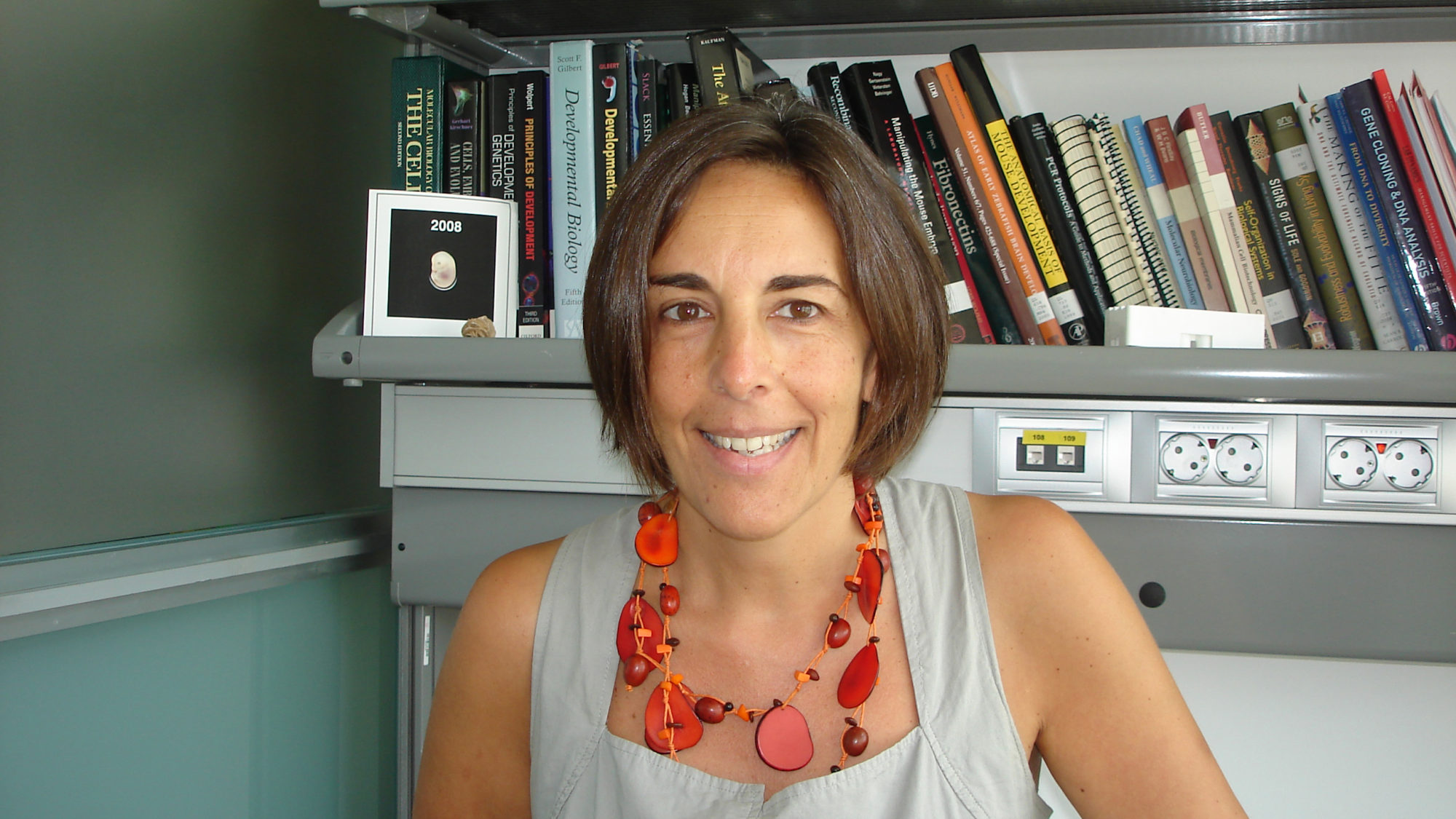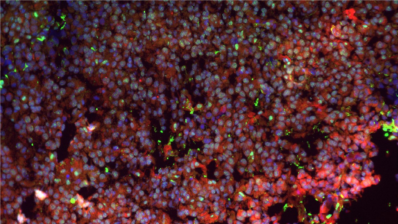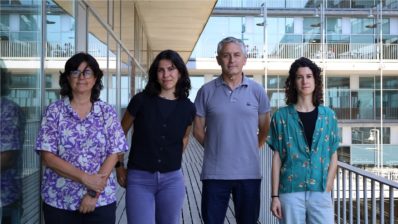Cristina Pujades studies the development of the Central Nervous System. This biologist from Mataró, graduated and got her PhD at the Universitat de Barcelona. After four years at the Dana-Farber Cancer Institute at Harvard, and eight more in Paris, she returned to Barcelona eight years ago to start her own group at the Department of Experimental and Health Sciences, Pompeu Fabra University (CEXS-UPF), where she is associate professor. Currently she is also part of the director’s team of the department.
When did you first feel the passion for science?
It just came along. I studied biology and I liked the mixture between reasoning and creativity that is science.
After your PhD you went abroad – why?
There weren’t so many laboratories here at the time; there was no choice, we all left when we finished our PhD. I think it’s a fantastic personal experience.
What made you return to Barcelona?
I heard about a different public university, the Pompeu Fabra University (UPF), and about a new project, the Barcelona Biomedical Research Park (PRBB), and it sounded interesting. Now I’m delighted to be part of this adventure.
What’s your opinion about research in Catalonia, compared with abroad?
It’s improving, but there’s still a lot to do. Here there are isolated places where science is done in good conditions, but in general, both infrastructures and human resources are lacking. Conditions need to improve in order to recruit the best scientists and change de hierarchical and fixed vision that still prevails in some universities and research centres.
Another long term problem is the lack of scientific vocation. Maybe the scientist’s lifestyle and the job conditions aren’t attractive, and young people don’t see a social appreciation of scientists.
What would you advice to someone that is thinking of doing research?
If they are really motivated, they should just go for it. Research isn’t just another job, it needs a certain degree of passion. It has a lot of advantages but without motivation and enthusiasm, it could be frustrating.
How do you combine research with teaching?
Here at the UPF it is possible, because the educational burden is less than in other universities. And I love teaching, it’s very rewarding. You have to put very specific knowledge into perspective.
For a long time you have collaborated in outreach projects.
Yes, I think that scientists must help bring science closer to society. Every day there are more challenges about which citizens have to make decisions, so it’s necessary for society to be well informed.
“Scientists must help bring science closer to society”
What has been your experience as a woman in the scientific world?
I don’t think that I’ve received a different treatment just because I’m a woman. But it’s clear that a lot of women do their PhD and very few make it to group leaders. We are 9 women with a stable position at the CEXS, and 40 men!
And what is the reason?
There isn’t a unique reason. For one, the period in which one has to be most productive coincides with women’s biological clock, and there isn’t much help to conciliate high level research with maternity. On the other hand, we live in a society with an acquired sexist behaviour, even from women.
It is also true that, in order to be successful in research, one must be very competitive or even aggressive. A lot of women don’t feel comfortable with this; the challenge will be to introduce different behaviours in the research world.







